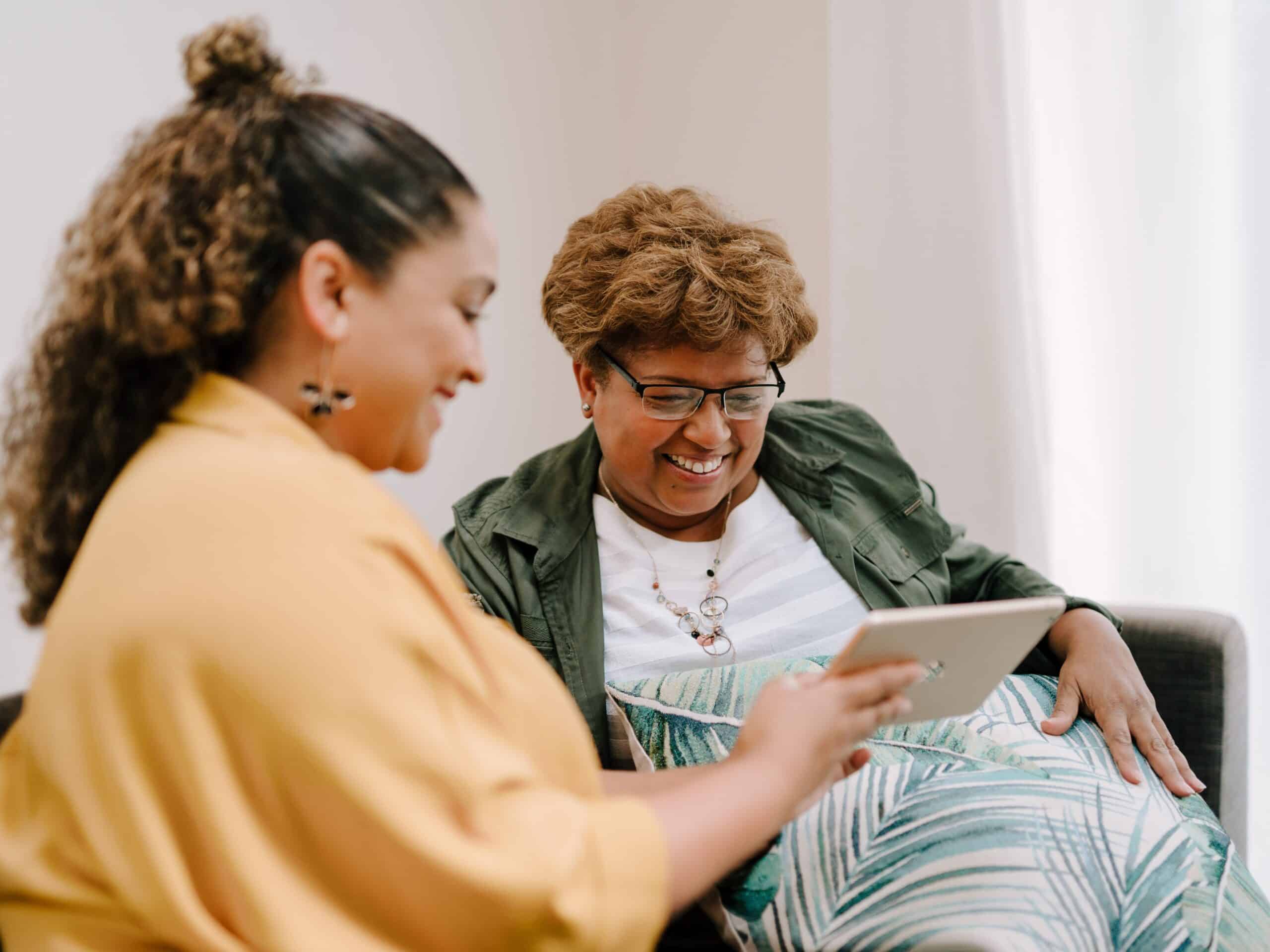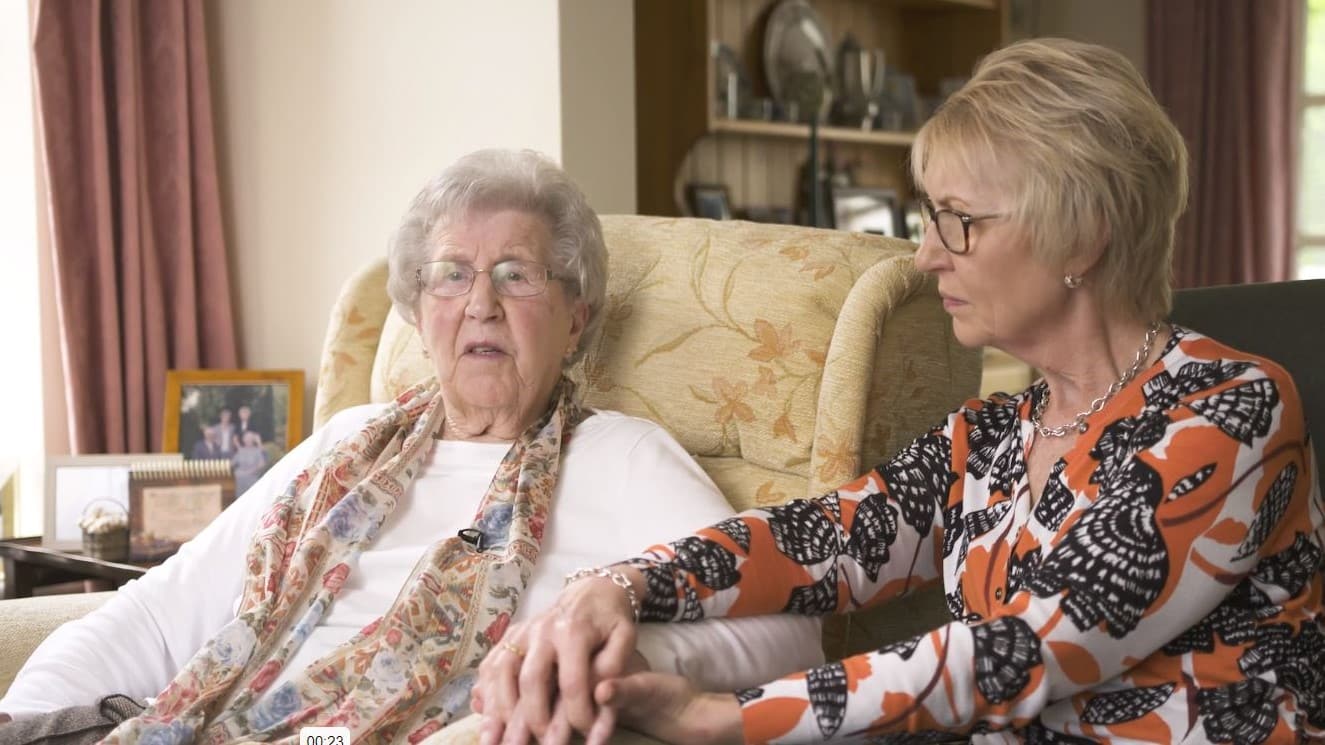The Benefits of Music Therapy for Elderly People

What is Music Therapy?
Music is all around us; from the moment we’re born until the moment we die we will usually be exposed to music in some shape or form. Whether it’s waiting on the phone to speak to a company, hearing it playing in the supermarket, or a taxi driver whistling along to the radio, music is a constant presence in our lives. Even if you’re not someone who actively listens to music at home, it’s hard to avoid hearing music played somewhere throughout the day, which isn’t really a bad thing. After all, Dementia UK tells us that “music can help reduce heart rate and blood pressure, relieve muscle tension and help people manage pain. It can also trigger feel-good hormones called endorphins, which may ease depression, anxiety and agitation.” Plenty of suggestion that music is good for us!
Something else that’s good for us is the independence offered by Helping Hands’ exceptional visiting care and live-in care services that are fully regulated by the Care Quality Commission and Care Inspectorate Wales.

Health Benefits of Music Therapy
The health benefits of music therapy are both physical and mental. Not only can music make a difference to every aspect of a person’s wellbeing but could especially benefit people who are living with dementia. Some of the abilities that are affected by dementia include concentration, attention span, memory, and communication skills, but there is evidence that music can have a positive impact on all of these. Indeed, Dementia UK tells us that “Listening to or engaging in music – for example, by singing, dancing or playing instruments – can help people with dementia develop and maintain relationships with others and improve their wellbeing.”
Mental Health Benefits
Dementia UK tells us that “Music can also help a person with dementia to connect with the past by evoking memories, feelings and emotions that they might otherwise find hard to express.”
Reminiscing is important to humans – it’s something that most people do regularly, especially as we get older. Just because someone is living with dementia it doesn’t mean they won’t still want to reminisce, it can just take a little more patience and understanding from those around them to help them do so. Looking back at our lives is natural, and reliving happy occasions and precious memories can be beneficial to our mental health. Music plays a major part in many people’s lives, by providing a soundtrack to events and experiences. Music can also benefit our mental health by:
Offering an outlet for the thoughts and feelings of people who are non-verbal
Helping someone to recall and share their personal story through reminiscence
Enabling a sense of belonging through a shared memory, such as a song sung to children when young
Reducing social isolation, through community groups such as ‘singing for the brain’
Reducing anxiety while having essential tasks carried
Physical Health Benefits

It isn’t just mental health that can benefit positively from hearing favourite music. While it can stimulate memories of nights spent dancing in clubs, crowding around jukeboxes, or being uplifted at a concert, it may also prompt someone to tap their fingers and toes, start swaying in their chair, or even standing up and dancing.
The benefits of this movement will not only support physical health, but can also reduce isolation through the social interaction of joining in group activities.
How Helping Hands can Help with Elderly Care
Helping Hands have been providing elderly and dementia care in our customers’ homes for over 30 years, so it’s fair to say we really are experts in exceptional care delivery. Because we provide home care across the whole of England and Wales, you can be sure we’re local to you.
Our carers are amazing at what they do – helping our customers to live as independently as possible in the home they love, and we only choose the most compassionate people to join us. Our carers can support with every aspect of your daily routine, such as personal care, housework, medication management, and meal preparation, and they’ll also make sure you get to enjoy the music you love and attend activities outside your home.
